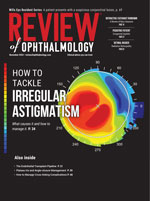Beyond pure entertainment value, an election year is a fascinating time because it heightens and exposes the vagaries of public opinion, and how it is shaped and responds to messaging.
From a somewhat longer perspective, health-care reform, one of the most divisive political issues of recent years, has now been around long enough to permit formal research into how public opinion of the legislation is formed and reformed.
One recent publication, well worth tracking down, does an admirable job breaking down the bewildering shifts and apparent inconsistencies in public opinion regarding 2010’s Affordable Care Act.1 It offers valuable insights that may interest not just patients but all participants in health-care reform.
Why would legislation, most of whose core components have been supported by majority public opinion back to the days of Richard Nixon, be subject to such wild swings of approval and rejection? Authors Lawrence Jacobs and Suzanne Mettler distinguish between the short-term messages apparently responsible for sudden shifts (such as the steep drop in support following widespread media coverage of Tea Party protests of the ACA), and the longer-term changes that are based how people perceive enacted policy, such as Social Security, affecting them personally.
There is good news and bad for physicians. The authors point out that those “who have experience or training related to the area of debate or are strongly motivated by its subject are less susceptible” to the short-term messaging, or what they refer to as “framing.” The downside: “Those who are particularly reliant on a given policy may be more susceptible than others to frames that tap their sense of vulnerability.” The recent flirtation with a 27-percent cut in Medicare reimbursement ought to tap into that vulnerability pretty nicely for you.
In a more disturbing segment, the authors explain how sophisticated analysis of opinion change in the past decade has “rigorously demonstrated that government policy does not, as a general rule, respond to [the opinion of the general public]; instead, the affluent and organized often exert the greatest impact if not exclusive influence on policy, while general opinion or the views of the less affluent or unorganized have little if any impact.” They cite earlier work that found that “the votes of U.S. senators are highly correlated with the preferences of higher-income individuals but exhibit virtually no responsiveness to the preferences of the majority of Americans.”
The fate of the health-care reform is far from settled, and the insights of this study are too numerous to detail here. Whether you support or oppose current health-care reform, it’s worth understanding the increasingly effective methods that all parties in this debate bring to bear to shape all of our opinions.
 |
1. Jacobs L, Mettler S. Why Public Opinion Changes: The Implications for Health and Health Policy. J Health Polit Policy Law 2011;36(6):917-33.



